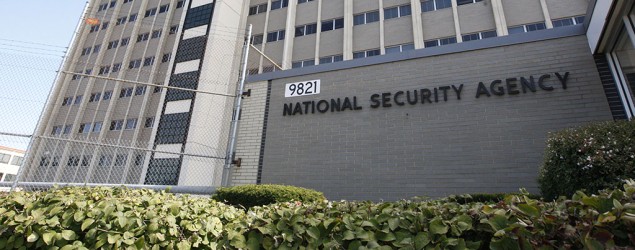View Gallery
Paris (AFP) - The United States was embroiled in a new row over its controversial spying program Monday as allies France and Mexico demanded an explanation of revelations Washington tapped millions of phonecalls.
The allegations, the latest from leaks by former NSA contractor Edward Snowden, marred a visit to Paris by US Secretary of State John Kerry, where he discussed moves to try to end the war in Syria.
French daily Le Monde reported that the US National Security Agency had secretly monitored 70.3 million phone communications in France over 30 days from December 10, 2012, to January 8.
German magazine Der Spiegel said the NSA had also hacked into former Mexican president Felipe Calderon's email account.
Seeking to tamp down the row as French officials publicly claimed shock, Kerry said: "We will have ongoing bilateral consultations including with our French partners that address this question."
He refused to comment on the specific accusations, but noted that Washington was reviewing its intelligence gathering operations in the wake of protests from allied governments.
The allegations come on top of previous revelations by Snowden -- who has sought safety in Russia as the US pursues him for leaking classified information -- that the US had a vast, secret programme called PRISM to monitor Internet users.
French prosecutors are already investigating the programme, and French Prime Minister Jean-Marc Ayrault said he was "deeply shocked" by the new revelations.
"It's incredible that an allied country like the United States at this point goes as far as spying on private communications that have no strategic justification, no justification on the basis of national defence," he told journalists.
French Foreign Minister Laurent Fabius, on a visit to Luxembourg, said US ambassador Charles Rivkin was summoned to his ministry early Monday.
"These kinds of practices between partners that harm privacy are totally unacceptable," he told reporters, adding France needed assurances that the United States was no longer monitoring its communications.
His comments were relayed to the US ambassador during the meeting, a ministry spokesman said -- the second time in less than four months that America's top representative in France has been hauled in over revelations about US snooping.
Review to balance security and privacy
But Kerry sought to defend the US position.
"Protecting the security of our citizens in today's world is a very complicated, very challenging task... because there are lots of people out there seeking to do harm to other people," Kerry said at a press conference after meeting Arab League officials.
"Lots of countries are engaged in the activity of trying to protect their citizens in the world," he said. "Our goal is always to try to find the right balance between protecting the privacy and security of our citizens."
According to Le Monde, the spy agency automatically picked up communications from certain phone numbers in France and recorded certain text messages under a programme code-named "US-985D".
The French daily said the documents gave grounds to believe that the NSA targeted not only people suspected of being involved in terrorism but also high-profile individuals in business and politics.
German Foreign Minister Guido Westerwelle said Paris was entitled to feel outraged. "I understand the outrage and the anger in France at spying actions wholeheartedly -- that is not how it should work between partners, between friends," he said.
'A lucrative source'
Der Spiegel also revealed that US agents had hacked into the Mexican presidency's network, gaining access to Calderon's account.
According to the report, the NSA said this contained "diplomatic, economic and leadership communications which continue to provide insight into Mexico's political system and internal stability."
The agency reportedly said the president's office was now "a lucrative source."
Mexican authorities said they would be seeking answers from US officials "as soon as possible."
"This practice is unacceptable, illegitimate and contrary to Mexican law and international law," the foreign ministry said.
This is not the first time France and Mexico have been targeted under NSA spying allegations since information leaked by Snowden first emerged in June.
Mexico's current President Enrique Pena Nieto has already complained to Obama over reports US spies have gone through his emails.
And Der Spiegel reported last month that in 2010 the NSA monitored the internal computer network of France's diplomats and that of the foreign ministry.
But France itself has also been accused of spying. Le Monde reported over the summer that intelligence services intercepted all communications in the country, stocking telephone and computer data for years -- accusations denied by the government.
Brazilian President Dilma Rousseff has also postponed a planned visit to Washington in protest at NSA spying on her official communications.
White House responds to new NSA claims

Washington declines comment as Mexico and France demand answers regarding the latest reports of spying.
'All nations' do it.